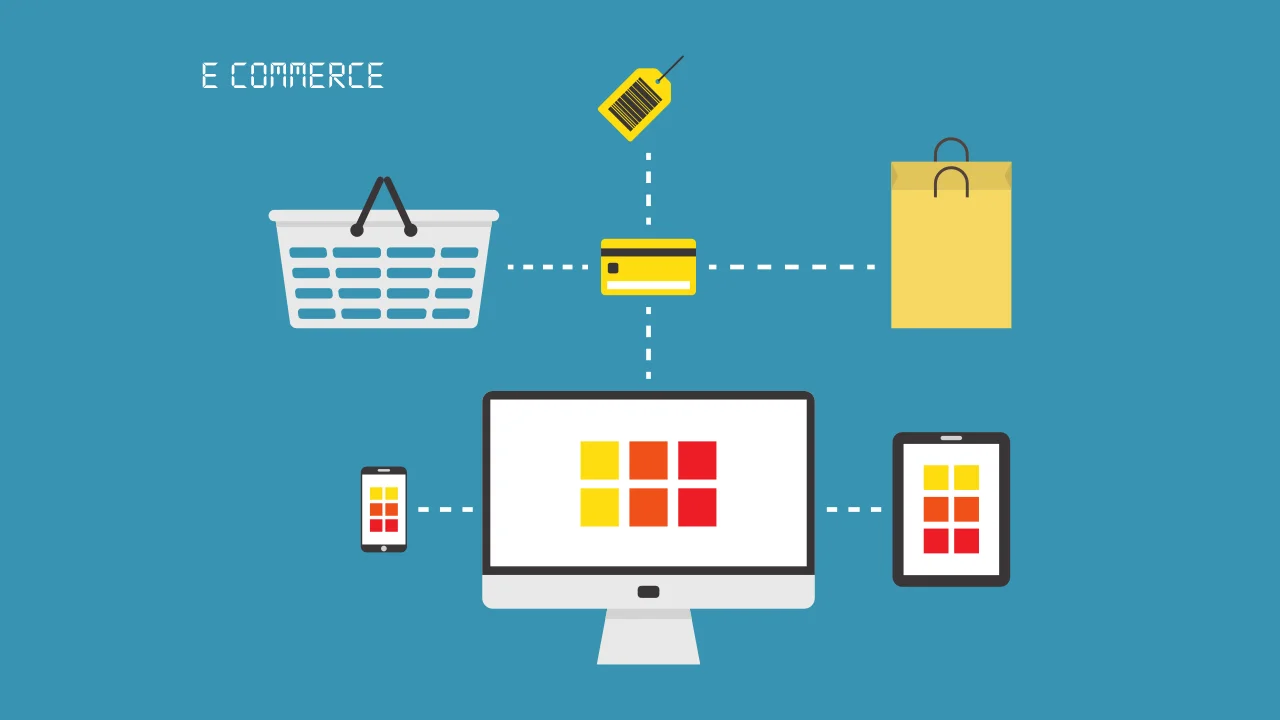The rapid evolution of e-commerce platforms continues to reshape global retail by enabling seamless, personalized, and immersive shopping experiences. Powered by advancements in artificial intelligence, augmented reality, and blockchain technology, these platforms are enhancing customer engagement and operational efficiency. With growing mobile penetration and digital payment solutions, e-commerce platforms remain the critical backbone of the digital economy, catalyzing growth for retailers, brands, and consumers worldwide.
According to Straits Research, "The global e-commerce platform market size was valued at USD 6.32 billion in 2024 and is expected to grow from USD 6.81 billion in 2025 to reach USD 18.5 billion by 2033, growing at a CAGR of 12.3% during the forecast period (2025-2033)."
Growth Trends and Emerging Technologies
2025 marks a year of accelerated adoption of cutting-edge technologies in e-commerce platforms, creating more interactive and secure shopping experiences. Generative AI and conversational AI are revolutionizing search and customer service, enabling natural language interactions that predict and personalize product recommendations at scale. Retailers are increasingly embedding AI shopping assistants in their platforms, leading to faster decision-making and higher conversion rates.
Augmented reality (AR) is another transformative element, allowing customers to virtually try on products or visualize furniture in their living spaces before purchase, thereby reducing return rates and boosting buyer confidence. Blockchain adoption is growing for secure payments, supply chain transparency, and fraud protection, reinforcing trust in online transactions.
Livestream shopping remains a powerful driver of sales, merging entertainment with commerce and engaging younger demographics through real-time influencer-led promotions. Social commerce continues its upward trajectory, with platforms like TikTok, Instagram, and eBay Live expanding deeply into the retail ecosystem, capturing new consumer segments and increasing social engagement.
Key Players and Regional Highlights
Leading global providers like Shopify, BigCommerce, Magento (Adobe), WooCommerce, Salesforce Commerce Cloud, and Oracle Commerce are expanding their platform capabilities with AI, headless commerce, and omnichannel integrations. Fintech and payment innovations from companies such as PayPal, Stripe, Square, and Klarna complement these platforms by simplifying checkout and enabling flexible financing.
Country-wise:
-
United States: Shopify, Salesforce Commerce Cloud, and BigCommerce dominate with innovative AI integration and extensive developer ecosystems supporting SMBs to enterprises.
-
China: Alibaba’s Tmall, JD.com, and Pinduoduo continue to lead with extensive use of livestream shopping, social commerce, and next-gen logistics.
-
Europe: Platforms like VTEX and Mirakl drive B2B and marketplace commerce, focusing on sustainability and data privacy compliance with GDPR.
-
India: Flipkart, Amazon India, and niche players like Nykaa and Meesho harness mobile-first users and regional language localization, leveraging rapid growth in tier-2 and tier-3 cities.
-
Southeast Asia and LATAM: Shopee, Lazada, and MercadoLibre capitalize on mobile penetration and social commerce trends to boost regional e-commerce adoption.
Recent News and Industry Updates
-
April 2025: Shopify announced launch of an AI-powered product discovery engine that dynamically personalizes catalog displays by consumer behavior predictions, increasing conversion by up to 35%.
-
June 2025: TikTok Shop surpassed $17 billion in annual commerce sales, leveraging influencer livestreams and social engagement to drive rapid growth, particularly among Gen Z shoppers.
-
July 2025: Amazon introduced “Alexa Voice Shopping Pro,” integrating advanced AI chatbots to assist shoppers with natural voice conversations, including complex queries and product comparisons.
-
March 2025: Flipkart expanded its “Flipkart Quick” 30-minute delivery service with AI-driven inventory management to over 100 cities in India, accelerating last-mile delivery speed and customer satisfaction.
-
August 2025: Klarna launched a BNPL (Buy Now Pay Later) subscription model integrated with Shopify, enabling merchants to offer flexible financing options seamlessly at checkout.
Strategic Insights and Competitive Landscape
The intensifying competition has pushed e-commerce platforms to offer increasingly modular, API-first, and headless architectures. This flexibility meets the rising demand for omnichannel and hybrid commerce, enabling brands to create personalized customer journeys across mobile apps, social media, web, physical stores, and voice assistants.
Sustainability is emerging as a decisive factor, with platforms facilitating carbon footprint tracking, eco-friendly packaging options, and circular economy integrations appealing to environmentally conscious consumers. Data privacy and cybersecurity continue to be critical investment areas amid increasing regulatory scrutiny, with GDPR and CCPA compliance underpinning platform trustworthiness.
Fintech is deeply entwined with platform evolution, as embedded payment solutions, instant credit, and loyalty financing grow essential for customer retention and expanded spending capabilities.
Country-Specific Developments
-
USA: Shopify’s AI initiatives and Amazon’s Alexa advancements underscore a high-tech focus. Payment innovations from Stripe and Klarna remain critical to growth.
-
China: Alibaba leverages livestream commerce and intelligent logistics, while JD.com innovates with cashier-less stores and drone deliveries.
-
Europe: GDPR compliance drives data governance innovation; platforms prioritize privacy-first commerce models.
-
India: Rapid urbanization and mobile-first shoppers fuel Flipkart’s and Amazon’s growth, supported by aggressive logistics expansions and regional language marketing.
-
Southeast Asia and LATAM: Platforms like Shopee and MercadoLibre emphasize social commerce and mobile payments to deepen market penetration.
Three-Line Summary
E-commerce platforms are at the forefront of digital retail transformation, driven by AI, AR, social commerce, and fintech innovation. Global leaders across regions are deploying advanced technologies and seamless shopping experiences to capture growing online consumer demand. With evolving buyer expectations and robust investment, e-commerce platforms are set to accelerate unprecedented growth through 2033.






